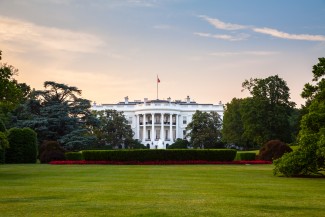The Biden administration has a big agenda for strengthening energy efficiency standards in the second half of this term, but achieving it will require that White House reviews not be a stumbling block. A newly confirmed regulatory czar, Richard Revesz, could help make the administration’s climate goals become a reality—and not allow the rulemaking agenda to go off track.
While the administration wrestles with the massive job of implementing the climate investments of the Inflation Reduction Act, agencies must also tackle the separate (and often overdue) work of setting binding energy standards. For instance, the Department of Housing and Urban Development (HUD) is preparing a preliminary step toward ensuring that federally supported homes are built to far stronger efficiency criteria. The Department of Energy (DOE) is working on dozens of updated appliance and equipment standards that it recently said “will reduce greenhouse gas emissions by more than 2.4 billion metric tons and save consumers $570 billion cumulatively over 30 years.” The Environmental Protection Agency and Department of Transportation are expected to propose long-awaited new standards for both cars and trucks in the coming months—helping determine the climate impact of tens of millions of vehicles.
The challenge is getting these rules proposed and then finalized in accordance with legal deadlines (in some cases) and to meet each agency’s work plans for completing actions before the end of this presidential term. It takes a concerted effort. That includes timely action by the White House’s Office of Information and Regulatory Affairs (OIRA), which reviews significant regulations before they are proposed and again before they are finalized. The administration doesn’t have the luxury of time for hold-ups.
Key rules delayed by White House reviews
A long-standing executive order gives OIRA 90 days to review proposed and final rules, with a possible 30-day extension. Many rule reviews in this administration have met these deadlines, but others have not come close.
DOE’s standards for clothes dryers, for instance, were reviewed for five months last year before they were proposed. A landmark federal building performance standard developed by the White House’s own Council on Environmental Quality faced a six-month-long review.
The pending HUD action has been in OIRA review for 160 days, raising bipartisan congressional concern. The consequences of that delay are enormous. Each month of delay in updating the criteria means nearly 20,000 new homes are built to outdated codes. That means needless energy costs and greenhouse gas emissions from those homes for decades to come.
For most standards, agencies use longstanding and proven analytical methods, ones that OIRA has reviewed countless times before. In other words, the deadlines should be achievable.
Another risk is the weakening of proposed or final standards during the White House review process. That’s what happened with DOE’s final standards for manufactured homes, which were far weaker than we hoped. It turned out that DOE had sent the White House a stronger final standard, but it was revised during the review period to achieve only modest efficiency improvements in smaller manufactured homes, which will leave the lowest-income residents with high energy bills for years ahead.
To be sure, the administration has mostly issued strong rules, and some OIRA reviews have been well under the time limits. But confronting the climate challenge at the needed pace requires running a tighter ship.
New OIRA administrator should help ensure timely reviews
For the first two years of this administration, OIRA operated without a Senate-confirmed administrator. But just before Christmas, the Senate confirmed law professor Richard Revesz, a leading expert on regulatory analysis, to the position (ACEEE supported Revesz’s confirmation in a letter last fall).
Revesz is now in a prime position to ensure that rule reviews are completed within the executive order deadlines and assist strong rules. The calendar leaves little choice. With DOE planning to propose or finalize dozens of efficiency standards this year alone, there is simply no time for delays.
We want to see the president’s pledges to help families and businesses reduce their bills while combating the climate crisis become a reality. Revesz and the entire White House will need to help the agencies meet their agendas to do so.



